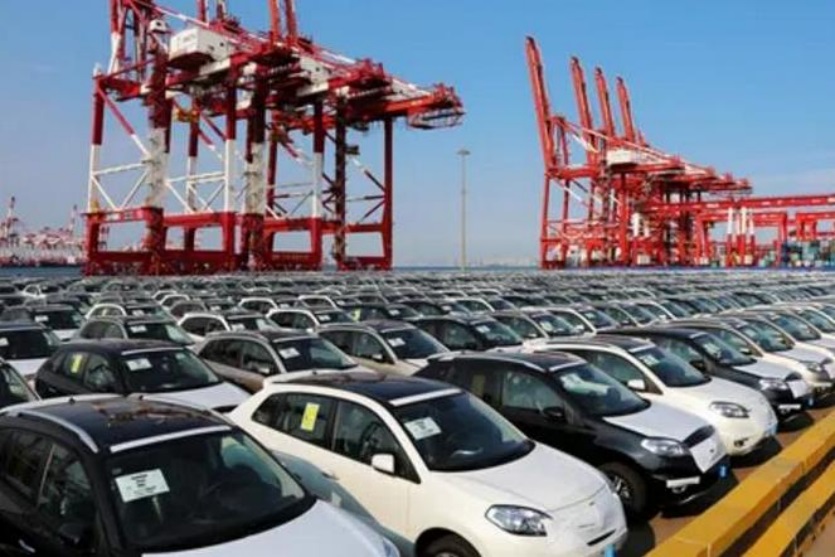
Recently, according to the US Wall Street Journal reported that the US government plans to increase the import tariff of Chinese electric vehicles from the current 25% to 100%. This comes on the heels of an agreement between China and the United States to strengthen cooperation on climate-related issues, including the promotion of green energy. This move by the United States has undoubtedly put a "veil" on cooperation.
In this regard, the local media in the United States questioned, saying that the trade protectionism of increasing tariffs is driving American automakers into the abyss. So why is the US raising tariffs on electric car imports?
First of all, the recent poor overall sales of electric vehicles in the United States, which may be related to the lack of infrastructure construction in the United States (such as charging piles), leading to low consumer acceptance of electric vehicles, more inclined to hybrid vehicles. Therefore, the United States may want to protect the domestic electric vehicle industry by raising tariffs to reduce the number of imported electric vehicles.
Second, the United States may try to improve its trade deficit with China by raising tariffs to reduce demand for Chinese high-tech products and technologies. However, such a move may harm the interests of both sides, aggravate economic and trade frictions, and is not conducive to bilateral cooperation and development.
In addition, there are views that the United States may raise electric vehicle import tariffs for political considerations, such as to win votes in the election. The imposition of tariffs can be seen as a commitment to the industrial workers of domestic companies in the United States to demonstrate the government's support for domestic industry.
Finally, the United States may also be concerned about China's rapid development in the field of new energy vehicles and try to slow this trend by raising tariffs. However, history has proved that technology is constantly advancing, and blockade and repression will only stimulate China's stronger development momentum.
To sum up, there may be many reasons for the United States to raise import tariffs on electric vehicles, however, such an approach by the United States may also bring a series of negative effects.
For American consumers, there is a higher price to pay for electric vehicles. This may weaken the competitiveness of electric vehicles in the market and reduce consumers' willingness to buy, thus limiting the further development of the electric vehicle market. In addition, high tariffs could also lead to a reduction in the supply of electric vehicles in the US market and a narrowing of consumer choices.
For electric vehicle manufacturers, they may face greater export pressure and market uncertainty. High tariffs will increase the price of their products in the US market and reduce their competitiveness, potentially leading to a decline in sales and a loss of market share. This will have a negative impact on their financial situation and long-term development.
The impact on the global electric vehicle industry is also far-reaching. Electric vehicles are one of the important development directions of the global automotive industry, and all countries are actively promoting the development of electric vehicles. The increase in tariffs by the United States may disrupt the competitive landscape of the global electric vehicle market, affecting trade relations and industrial cooperation between countries.
The policy could also trigger a trade war and retaliatory measures. If China were to take similar tariffs or other retaliatory measures, it would likely lead to further trade tensions between the two sides, with adverse effects on the global economy.
In general, the harmful behavior of the United States in raising import tariffs on electric vehicles has seriously affected the normal global trade order. Countries need to consider their own economic and political interests, as well as their relations with other countries, when responding to the US tariff increase on electric vehicles. At the same time, it is also necessary to pay attention to changes and trends in the global market in order to adjust their strategies in time.

报告显示,中国电力投资加速增长,预计2024年电网基建投资将超过5300亿元。
近日,市场迎来了一则引人注目的消息:工业巨头3M公司(MMM.N)在本周五公布了其季度业绩报告,随后股价飙升至近两年来的
最近,外媒给OpenAI算了笔账,今年可能要血亏50亿美元。
近日,巴黎奥运会和世界铁人三项协会联合发布了一项重大决定,宣布因塞纳河水质污染问题,原定于近期进行的奥运会铁人三项首次下
当地时间7月18日,法国巴黎发生了一起令人震惊的持刀袭警事件。
近期,一则重大消息在国际舞台上引起轩然大波,马来西亚宣布加入金砖国家。
调查发现,互联网和智能手机的使用干扰了韩国近五分之一学生的生活。